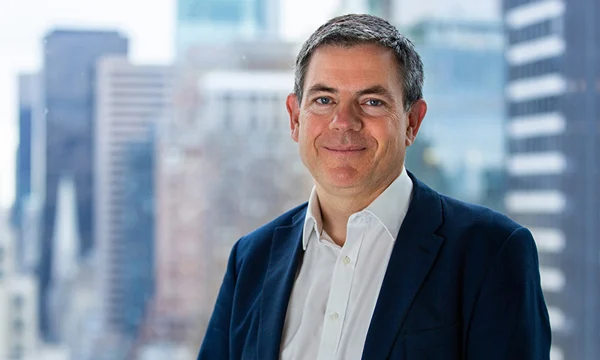Sign up today to get the best of our expert insight in your inbox
Speed to power: how can America accelerate the build-out of the next grid?
Special episode from the ACORE Grid Forum in Washington DC
Ed Crooks
Vice Chair Americas and host of Energy Gang podcast

Ed Crooks
Vice Chair Americas and host of Energy Gang podcast
Ed examines the forces shaping the energy industry globally.
Latest articles by Ed
-
Opinion
Supply chain constraints limit the growth of gas-fired generation in the US
-
Opinion
A solution to the problem of paying for data centre power?
-
Opinion
The US oil industry is consolidating as growth slows
-
Opinion
Energy storage steps up
-
Opinion
How the US power system coped with the threat from Winter Storm Fern
-
Opinion
International buyers find value in US gas assets
Electricity demand in the US is rising faster than it has in decades, driven by AI and a wave of investment in domestic manufacturing. But with transmission lines and other electricity infrastructure taking years to permit and build, how can America secure the power it needs fast enough to remain competitive?
In this special episode of Energy Gang, recorded at the ACORE Grid Forum in Washington DC, host Ed Crooks speaks with industry leaders, innovators, and policymakers tackling the challenge of “speed to power”, and asks them for their ideas on how to accelerate the build-out of the next grid.
Ed begins the episode with Heather Reams, President of Citizens for Responsible Energy Solutions, who explains why bipartisan consensus on permitting reform is finally within reach, and what it will take to sustain political will through an election year.
Next, Richard Kauffman, Chair of the Coalition for Green Capital, shares his perspective on how creative financing models and public-private partnerships can unlock investment for distributed and community-scale energy projects that strengthen the grid from the ground up.
Ed then speaks with Rob Gramlich, Founder and President of Grid Strategies LLC, who breaks down the regulatory and planning challenges slowing progress on transmission and offers insight into the reforms needed to modernise America’s grid for a new era of demand.
Technology can help find solutions faster. Theodore Paradise, Chief Policy and Grid Strategy Officer at CTC Global, discusses how advanced conductors with carbon fibre cores can double transmission capacity without building a single new line. He also explains how CTC’s new partnership with Google is accelerating the deployment of new transmission technology.
Finally, Ray Long, President and CEO of ACORE, joins Ed to bring all the threads together, highlighting how political leadership, technology, and finance must converge if the US is to meet its rising power needs and remain globally competitive.
This episode was recorded at the ACORE Grid Forum in Washington DC.
You can also watch the full conversation in video format on YouTube - just search Energy Gang.
Let us know what you think. We’re on X, at @theenergygang and Bluesky, at @theenergygang.bsky.social. Make sure you’re following the show so you don’t miss an episode – we’ll be back in two weeks, Tuesday morning at 7am eastern time.
This episode is brought to you by the American Council on Renewable Energy.
Based in Washington, DC, ACORE is a nonpartisan nonprofit organisation that promotes investment in American clean energy infrastructure, development, and innovation.
In partnership with a broad membership that spans the energy value chain, ACORE advances the public policies, market research, and industry convenings to position the United States as a global leader in clean energy deployment.
Whether it’s the latest policy and market developments to legislative and regulatory tracking, industry data and analysis, or marquee events like the Finance Forum in New York, or the Grid Forum in DC, ACORE unites clean energy investors, developers, energy buyers, power generators, manufacturers, and energy providers and more.
Learn more about joining ACORE.
Business as usual is over
Introducing the latest insight from our thought leaders, the book Connected: Bringing predictability to the increasingly uncertain world of energy.
As climate change accelerates and geopolitical tensions reshape global markets, the energy landscape has become increasingly interconnected. Connected explores why those interconnections have developed, and how they bring clarity to the most important decisions we make about the future of energy.







